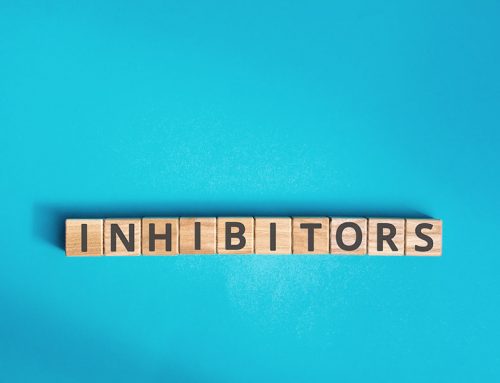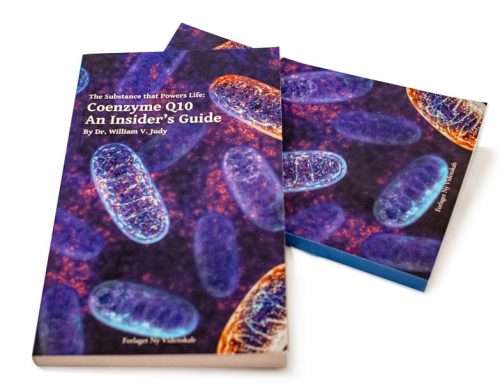
For the best absorption, take the Q10 supplement with meals that contain some fat. You will get the best effect if you take smaller dosages twice or three times a day than if you take one large dose once a day.
What kind of Coenzyme Q10 supplement should you be taking? Now that we have documented evidence of the significant health benefits of Coenzyme Q10 supplements, it is no longer a question of whether you should take a Q10 supplement every day. It is a question of which one. The “whether” part does not seem to be in doubt any longer, and especially not if your doctor has you taking a statin medication.
Q10 should surely be at the top of the list of the supplements that you are taking? I have been taking a Q10 supplement for years, and – knock on wood – I have no problems with heart health, diabetes, or hypertension. So, personally, I am in no doubt that I want to take a Q10 supplement.
Significant health benefits with Q10 supplementation
Even so, I have been impressed by the publication of results showing statistically (and clinically) significant benefits in the Q10 treatment groups as compared with the placebo control groups in the following studies:
- the Q-Symbio study Dec. 2014)
- the Gulf War Veterans study (Nov. 2014)
- the KiSel-10 study (Sep. 2013)
Remember, these were scientific studies in which the participants were randomly assigned to receive the real thing (Coenzyme Q10) or to receive a faux preparation that looked just like the Q10 capsule, and neither the doctors nor the participants knew who was in which group until the code was broken at the end of the study.
Scientific documentation of the Q10 effect
Now we have scientific documentation that supplementation with Q10 can lead to some important health benefits:
- Fewer adverse cardiovascular events
- Fewer hospitalizations and shorter hospital stays
- Longer life
- Better quality of life
What do you want in a Q10 supplement?
So the question is: what should you be looking for in a Coenzyme Q10 supplement? What do you want in the supplement that you buy?
Thinking about the price of Q10
Yes, price is important. However, taking a Q10 supplement is one of those things about which you have to say to yourself: if I am going to do it, I am going to do it right. You would not buy a cheap car to save yourself money only to have the car not start reliably, am I right? It is the same with Coenzyme Q10 supplements.
You want a product that is safe, that is absorbed well in the body, and that has beneficial health effects.
First off, I think that you want to go with the ubiquinone form (Q10) as opposed to the ubiquinol form (QH2). Researchers have been doing good solid scientific studies with the ubiquinone form since the 1990s. For example, back in 1993, Morisco and a group of Italian heart specialists published a good long-term multi-center study of the beneficial effects of therapy with the ubiquinone form of Q10 on congestive heart failure patients.
The ubiquinol form was first introduced as a commercial product in 2007. Since then, I have seen many marketing claims but not many research results in humans for the QH2 substance, which is known to be much less stable and much more difficult to formulate than ubiquinone Q10 (1). For more discussion of the ubiquinone-ubiquinol issue, please see my earlier article on this website.
Secondly, I think that you want to make sure that you are buying the ubiquinone that contains all trans-isomers (1). My reasoning is the same. Almost all of the research that has been done has been done with ubiquinone Q10 that is in the form of trans-isomers. Moreover, it seems that all of the Q10 synthesized by the body – the body makes ubiquinone, not ubiquinol – is in the form of the trans-isomers.
Very little study of Q10 preparations containing cis-isomers has been done. I am working on an article for this website about the trans- and cis-isomer issue as it relates to Q10 products.
Thirdly, I think that you want a ubiquinone Q10 preparation that has the ubiquinone Q10 crystals dissolved in vegetable oils … and this is important … you want a ubiquinone Q10 supplement that has the ubiquinone Q10 crystals dissolved and encapsulated in soft gel capsules in such a way that the Q10 molecules do not re-crystallize inside the capsule.
Ubiquinone Q10 crystals do not and will not dissolve at body temperature. Coenzyme Q10 has a melting point that requires a temperature above 50 degrees Celsius (122 degrees Fahrenheit) to make the crystals dissociate (1). Therefore, the raw material ubiquinone Q10 crystals need to be pre-heated and dissolved and then cold packed to ensure that each capsule is delivering single molecules and not crystals to your digestive system.
On this issue of absorption, there is not enough scientific evidence at the present time to make me think that nanoparticle formulations or liposomal formulations or hydro-soluble formulations or chewable formulations are preferable to oil-based ubiquinone Q10 supplements. You certainly do not want to purchase a Q10 supplement in the form of a dry powder (1).
Fourthly, if you can get it, you want a ubiquinone Q10 supplement that has been tested in gold standard clinical trials. Absorption is good. Absorption is important. Without good absorption, the Q10 that you take is eliminated in the stool within a couple of days of ingestion.

As we get older, our bodies synthesize less of the Coenzyme Q10 that we need for energy production and antioxidant protection in the cells. Moreover, if we take a statin medication, we block the biological pathway that makes Q10 in our bodies.
What you want, in the end, is a ubiquinone Q10 supplement that has been compared with a realistic looking placebo in randomized double-blind studies and has been found to give health benefits that are statistically and clinically significant:
Longer life (2)
Better quality of life (3)
Better exercise capacity (4)
A healthy heart muscle (5)
Sources:
- Judy, W.V., Stogsdill, W.W., Judy, D.S., & Judy, J.S. (2007). Coenzyme Q10: Facts or Fabrications? Natural Products Insider. Retrieved from http://www.zmc-usa.com/docs/CoQ10_Facts_or_Fabrications.pdf
- Alehagen, U., Johansson, P., Björnstedt, M., Rosén, A., & Dahlström, U. (2013). Cardiovascular mortality and N-terminal-proBNP reduced after combined selenium and coenzyme Q10 supplementation: a 5-year prospective randomized double-blind placebo-controlled trial among elderly Swedish citizens. International Journal of Cardiology, 167(5), 1860-1866. doi:10.1016/j.ijcard.2012.04.156
- Golomb, B. CoQ10 and gulf war illness. Neural Computation 2014 Nov; Vol. 26 (11), pp. 2594-651
- Rosenfeldt F. et al. Systematic review of effect of coenzyme Q10 in physical exercise, hypertension and heart failure. Biofactors (Oxford, England). 2003;18(1-4):91-100.
- Mortensen, S. A. (2015). Coenzyme Q10: Will This Natural Substance Become a Guideline-Directed Adjunctive Therapy in Heart Failure? JACC. Heart Failure, 3(3), 270-271. doi:10.1016/j.jchf.2014.12.006









Your article gave me a lot of inspiration, I hope you can explain your point of view in more detail, because I have some doubts, thank you.
Hi –
Remember, the q10facts.com articles are summaries of recently published clinical trials of CoQ10 supplementation. We try to give details about the study participants, the formulation and dose and duration of the CoQ10 treatment, and the outcomes.
Generally, the thing to know about Coenzyme Q10 can be summarized as follows:
1) We humans produce less Coenzyme Q10 as we get older, especially when we pass middle age.
2) Some medications, statin medications in particular, can interfere with our body’s synthesis of Coenzyme Q10.
3) Consequently, we need CoQ10 supplementation as we get older.
4) We need Coenzyme Q10 for its role in ATP energy production — especially important for the heart muscle — and for its antioxidant protection and for its anti-inflammatory function.
5) CoQ10 in its raw form consists of CoQ10 crystals with a high melting point. The body cannot dissolve and absorb the CoQ10 crystals.
6) Coenzyme Q10 requires careful formulation by the supplement manufacturer.
7) The absorption of CoQ10 molecules – large fat-soluble molecules – is difficult at best.
8) It is important to choose a CoQ10 supplement for which there exists published documentation of the product’s absorbability and/or published documentation of the product’s efficacy in randomized controlled trials.
9) The form of the CoQ10 supplement — whether in the ubiquinone form or the ubiquinol form – has been shown to be considerably less important for absorption than the formulation of the product – the mix of carrier oils and the heating and cooling process [López-Lluch G, Del Pozo-Cruz J, Sánchez-Cuesta A, Cortés-Rodríguez AB, Navas P. Bioavailability of coenzyme Q10 supplements depends on carrier lipids and solubilization. Nutrition. 2019 Jan;57:133-140.].
10. I use the ubiquinone form of Coenzyme Q10. Ubiquinone was used in the Q-Symbio clinical trial and in the KiSel-10 clinical trial [Mortensen SA, Rosenfeldt F, Kumar A, Dolliner P, Filipiak KJ, Pella D, Alehagen U, Steurer G, Littarru GP; Q-SYMBIO Study Investigators. The effect of coenzyme Q10 on morbidity and mortality in chronic heart failure: results from Q-SYMBIO: a randomized double-blind trial. JACC Heart Fail. 2014 Dec;2(6):641-9; Alehagen U, Johansson P, Björnstedt M, Rosén A, Dahlström U. Cardiovascular mortality and N-terminal-proBNP reduced after combined selenium and coenzyme Q10 supplementation: a 5-year prospective randomized double-blind placebo-controlled trial among elderly Swedish citizens. Int J Cardiol. 2013 Sep 1;167(5):1860-6.].